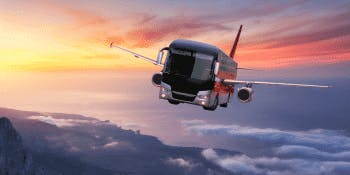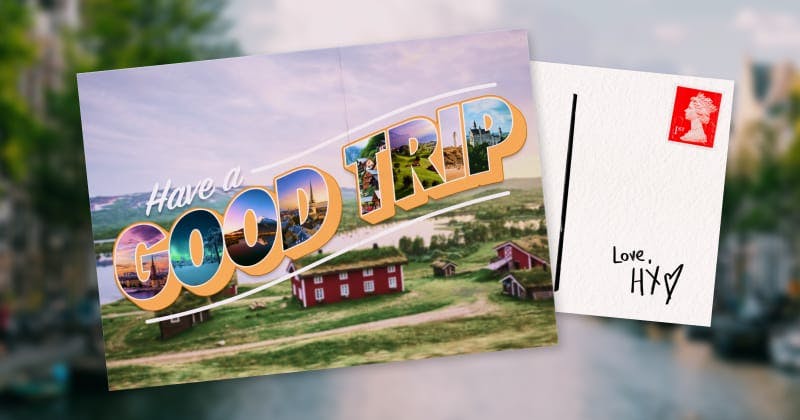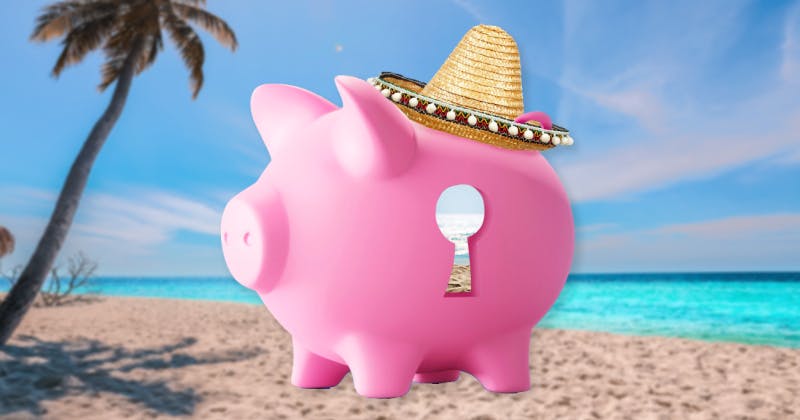
Munich Travel Guide
Here's everything you need to know about your trip to Munich, from world-beating beers and Oktoberfest to amazing parks and museums.
What you'll find in this guide:
Top things to do in Munich
Practical Information
Munich weather
Best time to visit Munich
Getting to Munich
Getting around Munich
Munich highlights
Oktoberfest in Munich
Munich food
Insider spots in Munich
Munich for families
Accessibility in Munich
LGBTQI+ travel in Munich
Sustainable tourism in Munich
Munich FAQs
GMT +2
Euros EUR
German
Type C & F
1 hour 50
Some facts about Munich
Munich was officially founded in 1158 by Henry the Lion, Duke of Saxony and Bavaria. It was named after the Benedictine monks who ran a monastery at the place that became the Old Town of Munich – Munichen translates to ‘by the monks’ place’.
Munich’s the beating heart of Bavarian beer culture. It’s the birthplace of the famous Reinheitsgebot, a set of laws allowing only water, hops and barley to be used in the production of beer. These strict regulations mean Munich brews as good a pint as anyone, and Oktoberfest might just be the best time to sample them. This world-famous Volksfest started in 1810 as a royal wedding celebration and now attracts millions of visitors and sells countless steins every year.
There’s more than just the beer in Munich that’s world-beating. Englischer Garten is one of the world’s largest public parks, the Deutsches Museum is one of the largest and oldest science museums and FC Bayern Munich are one of Europe’s most successful football clubs.
Practical Info
Culture and etiquette
Religion
The majority of Munich’s religious community is Catholic, and many are Protestant or Muslim. But most Munich locals aren’t religious at all, accounting for just under half of the population.
Tipping
Do you need to tip in Munich? A tip of around 10% will do the trick in Munich restaurants.
Smoking
Smoking is banned in public places like restaurants, bars and public transport.
Language 101
German is the main language in Munich, with locals speaking a distinctive Bavarian dialect. Many locals speak English so you shouldn’t find much of a language barrier – but if you fancy learning a few German phrases, the locals are sure to appreciate it.
Helpful German phrases:
- Hello – Hallo (in Bavarian: Servus)
- Goodbye – Tschüss (in Bavarian: Servus)
- How are you? – Wie geht es dir?
- Yes – Ja
- No – Nein
- What's your name? – Wie heißt du?
- My name is – Mein name ist
- Please - Bitte
- Thank you – Danke
- How much is it? – Wie viel kostet es?
- Where is? – Wo ist?
- A table for two please – Ein tisch für zwei bitte
- The bill please – Die rechnung bitte
- Numbers:
- One – Eins
- Two – Zwei
- Three – Drei
- Four – Vier
- Five – Fünf
Jabs, visas and other advice
For up-to-date advice on jabs, visas and other foreign advice, we recommend following the government's website.
Emergency numbers
For police call 110, or for fire and ambulance services it’s 112.
What's the weather like in Munich?
The weather in Munich really depends on the time of year – think mild, balmy summers and cold winters.
Spring starts cool but becomes warmer towards the end, with temperatures ranging between 8°C and 17°C. It can be a bit rainy, but there are plenty of sunny days too.
Summer brings lovely highs of around 24°C. There are many sunny days, although thunderstorms aren’t unheard of.
Autumn brings falling temperatures and more rainfall. Temperatures range between 9°C and 19°C. The autumn foliage in the many parks and along the streets creates the most gorgeous scenery to stroll through.
Winters are cold, with temperatures often around freezing. Snowfall is very common, which can turn the city into a beautiful winter wonderland.

When's the best time to visit Munich?
The truth is there’s never a bad time to visit Munich, it just depends what you want from your holiday.
The mild weather and blooming nature in spring makes it ideal for walking comfortably around the city and exploring the lovely parks. There are plenty of festivals this time of year – try Starkbierzeit in March, when breweries treat Munich to strong beers upwards of 7.5%.
Summer is officially beer garden season thanks to the gloriously high temperatures. But unlike many holiday destinations, the hot weather in summer can be a blessing for budget travellers heading to Munich – lots of the best outdoor attractions are free, and many beer gardens will be happy for you to bring a picnic as long as you buy a drink.
Autumn is dominated by Munich’s most-famous folk festival, Oktoberfest, bringing life and plenty of free-flowing beer to the city. Hotels tend to be expensive, and you’ll need to plan well ahead if you want to join in the festivities. And remember – Oktoberfest starts in September, not October.
Winter is perfect for lovers of Christmas markets and winter sports, with charming markets and good proximity to the Alps. It’s also a good time to explore the city’s indoor museums and galleries.
TopGetting to Munich
The fastest way to get to Munich from the UK is to fly. A direct flight from London to Munich usually takes just under 2 hours.
You can also get to Munich from the UK by catching the train. Take the Eurostar from London St Pancras to Paris, and then board a high-speed train (e.g. TGV or ICE) to Munich. It’ll take you a fair bit longer, but is a more environmentally friendly option than flying.
If you fancy the even longer drive to Munich, that’s possible too in about 12 hours from London. Drive through LeShuttle from Folkestone to Calais, or take the car ferry from Dover, and from there you can choose to drive through France or Belgium all the way to Germany.
Getting around Munich
Public transport like the U-Bahn, S-Bahn, trams and buses cover the city and its surroundings. You can buy one-day, three-day or group passes to save some money. You can also go for a CityTour Card that gives you discounts on many Munich attractions, or a QueerCity Pass that includes discounts at over 60 queer-friendly venues.
Driving can be quite tricky as the traffic can be quite busy, so we’d recommend taking public transport instead. Taxis and services like Uber are available, or for a more environmentally-friendly option Munich has loads of bike paths that make cycling around the city pretty easy.
Thankfully many of Munich’s best attractions are within walking distance of each other, so for the most part you should be able to explore the city comfortably on foot.
Top
Germany ranks 15th on the Good Trip Index
This score is calculated based on Sustainability, Human Rights, Women's Rights, Press Freedom, Quality of Life, LGBTQI+ Rights and Animal welfare
Find out moreMunich highlights
Marienplatz
The heart of Munich, known for the New Town Hall with its famous Glockenspiel and the historic Old Town Hall.

Nymphenburg Palace
A baroque palace that was the former summer residence of Bavarian kings, famous for its magnificent gardens and opulent interiors.

Olympiapark
Built for the 1972 Olympics, this park is now a venue for sports, culture and leisure activities.

Englischer Garten
Larger than Central Park in New York City, this vast park has a huge variety of activities.

Frauenkirche
One of Munich's most famous landmarks, this iconic church with its distinctive onion-shaped towers serves as the cathedral of the Archdiocese of Munich and Freising.

Viktualienmarkt
A traditional food market in the heart of Munich, offering regional specialties and international delicacies.

Deutsches Museum
One of the largest and oldest museums for science and technology in the world, located on the Museumsinsel.

Eisbachwelle
A popular spot for river surfing in the Englischer Garten, attracting daring surfers and fascinated spectators year-round.
 Top
TopOktoberfest in Munich
Oktoberfest is the world’s largest folk festival and takes place every year from late September to early October in Munich on the Theresienwiese. Visitors love the traditional Bavarian beer, regional delicacies, fun rides and lively festive atmosphere.
Fancy heading to Munich for Oktoberfest? Take a look at our guide to making the most of your first Oktoberfest.
Oktoberfest FAQs
When does Oktoberfest take place?
Oktoberfest starts in late September and ends in early October.
Where is Oktoberfest celebrated?
Theresienwiese.
Where can I find affordable traditional clothing (Tracht)?
How much does a Maß (beer) cost at Oktoberfest?
Between €13.20 and €17.40 (as of 2024).
How do I get to the Oktoberfest?
Public transport is the best choice. Use the U-Bahn lines U4 and U5 to Theresienwiese or Schwanthalerhöhe station.

What to eat in Munich
Munich's cuisine impresses with its hearty and savoury dishes, naturally accompanied by a freshly tapped beer. Here are a few things you need to try…
Weißwurst: This tender, pale delicacy made from fine veal and pork belly is traditionally enjoyed with sweet mustard and a freshly baked pretzel. Dive into this breakfast ritual, best devoured before noon.
Brezn (Brezeln): Nothing symbolises Bavarian hospitality better than a freshly baked, golden-brown pretzel. Whether as a snack or a companion to a cold beer, this crispy treat is an integral part of Bavarian culinary culture.
Schweinshaxe: A robust, rustic dish that shouldn’t be missing from any menu. The juicy pork knuckle, crispy on the outside and tender on the inside, served with dumplings and sauerkraut, is a true feast for the senses.
Obatzda: This savoury cheese spread, a mix of ripe Camembert, butter, and a pinch of paprika, is the star of any Bavarian snack.
Leberkäse: Warm in a crispy roll, liver cheese is the perfect snack after a long walk.
Insider spots from a Munich local
Rocky Horror Picture Show
In Munich, the Rocky Horror Picture Show has become a popular tourist attraction – especially the midnight screenings at the Museum Lichtspiele cinema, one of the oldest cinemas in the city. Fans often come in costume to the interactive performances and sing along to the classic songs live. These events offer a unique experience that attracts visitors from around the world and allows them to become part of the lively and colourful Rocky Horror fan community.
Schellingstraße
The red brick wall on the university library building along Schellingstraße still bears the bullet holes from World War II. These deliberately preserved marks serve as poignant reminders of the city's troubled history and have become part of the urban memory, reminding passersby of Munich's past.
Bahnwärter Thiel
Bahnwärter Thiel is a cultural venue in Munich constructed from an old subway car and other recycled materials. Inspired by similar alternative cultural projects in cities like Berlin, this venue provides a platform for artists and creatives. With its unique atmosphere and diverse offerings in art, music, and performances, Bahnwärter Thiel attracts a young crowd.
Flaucher
Flaucher is a popular area along the Isar River perfect for barbecuing, sunbathing and swimming. This natural area offers a relaxing escape from the urban hustle and bustle and attracts both locals and visitors.
Villa Stuck
There aren’t many better Jugendstil homes than Franz von Stuck’s. Devoted to the artist’s life and work, Villa Stuck is now a museum with elaborate Art Nouveau and Art Deco interiors and ever-changing exhibitions.
Kulturstrand
Munich might be landlocked, but that doesn’t mean you can’t go to the beach. Kulturstrand’s a relaxed riverside bar with it’s own urban beach that hosts concerts in the summer.
Munich for families
Here’s why we think Munich is a great place to visit with the kids…
Green spaces and parks: There are many large parks in Munich like the Englischer Garten and Olympiapark, providing plenty of space for walks and picnics with the little ones.
Children’s museums and educational offers: The city has several museums specifically geared towards children, including the Deutsches Museum and the Children’s and Youth Museum, offering interactive learning opportunities.
Public transport: Munich has an excellent public transportation system, making it easy for families to explore the city without relying on a car.
Safety: Munich is one of the safest major cities in Europe, which is particularly reassuring for families.
Playgrounds: Munich offers a variety of playgrounds ideal for families with children. In the Englischer Garten, Hirschgarten, and Olympiapark, there are lots of opportunities to play and explore.

Accessibility in Munich
Munich strives to be an accessible city. Most public transport is accessible, with ramp access to trams and lifts at most metro stations, plus you’ll find many top attractions and hotels have been designed or adapted with accessibility in mind. It also helps that many of Munich’s best attractions are fairly close together in the old city centre, meaning you usually won’t have far to go to get between major tourist sites.
The cobblestone in the city centre can be a challenge for people with mobility issues, and not all hotels and attractions are suitable for people with accessibility needs so make sure to check before you book.
Munich for LGBTQI+ travellers
Munich is known for its inclusive and vibrant LGBTQI+ scene. You’ll find lots of LGBTQ+ friendly clubs, bars, and events – the Glockenbachviertel is known as a lively centre of the LGBTQI+ scene, where many of these popular venues and events can be found.
Munich also hosts the annual Christopher Street Day (CSD), one of the largest pride events in Germany, celebrating the rights and diversity of the LGBTQI+ community.
Sustainable tourism in Munich
In truth it’s hard to avoid having an impact on the environment when you go on holiday, but when you travel to Munich there are a few things you can do to lessen this impact.
Instead of flying, why not take the train? The train from London to Paris emits 96% lower emissions than the equivalent flight, and from there you can catch the energy-efficient train all the way to Munich. The journey takes a fair bit longer, but after stopping off in Paris for a spot of lunch and a vin rouge you probably won’t care.
The city offers numerous options for environmentally conscious visitors, from green hotels that apply sustainable practices to public transport that makes a significant part of urban traffic environmentally friendly. Munich also has many parks and green spaces that invite relaxation and eco-friendly tourism.
TopMunich FAQs
How do I get from Munich airport to the city centre?
From Munich Airport, you can reach the city centre by S-Bahn, airport bus or taxi. The S-Bahn lines S1 and S8 run directly to the main train station, offering a quick and cost-effective connection.
How do I get to the Allianz Arena?
The easiest way is by taking the U-Bahn line U6 to Fröttmaning station. The Allianz Arena is within walking distance from there. It's best to get on or change at Marienplatz.
Where can you rent a bike in Munich?
In Munich, there are many options to rent a bike, making the city ideal for bike enthusiasts. One of the most well-known providers is MVG Rad, with lots of bike rental stations throughout the city.
What sights should I not miss in Munich?
Top sights in Munich include Marienplatz, the English Garden, the Deutsches Museum, the Pinakotheken, the Olympiapark, and Nymphenburg Palace. We also recommend a visit to the BMW Welt and Viktualienmarkt.
Are there special transport tickets for tourists in Munich?
Yes, Munich has various tourist tickets, like the Munich Card or CityTourCard, with unlimited rides on public transport and discounts at museums, tours, and other attractions.
Where can I enjoy authentic Bavarian cuisine in Munich?
For traditional Bavarian dishes, Hofbräuhaus, Augustiner-Keller and Hirschgarten are highly recommended. In these historic establishments, you'll find classics like Schweinshaxe, Weißwurst and Obatzda.
How safe is Munich for tourists?
Munich is generally considered a very safe city for tourists. As in any major city, however, you should keep an eye on your personal belongings, especially in crowds and tourist hotspots.
Are there any special events I should experience in Munich?
Aside from the world-famous Oktoberfest, visitors should not miss the Frühlingsfest, the Tollwood Festival in summer and winter, the Munich Film Festival, and the Long Night of Museums.
What is the best time to visit Munich?
The best time to visit Munich is from May to September when the weather is most pleasant. Spring and summer are ideal for city tours and visits to the many beer gardens. October is also popular, especially because of the Oktoberfest. But be prepared for higher prices due to high demand, and make sure you book early.
What’s the nightlife like in Munich?
Munich offers a diverse nightlife scene, from traditional Bavarian beer gardens to trendy bars and clubs. The Glockenbachviertel is known for its lively bars and clubs, and Schwabing is ideal for a combination of bar visits and late-night dining.
Top
























